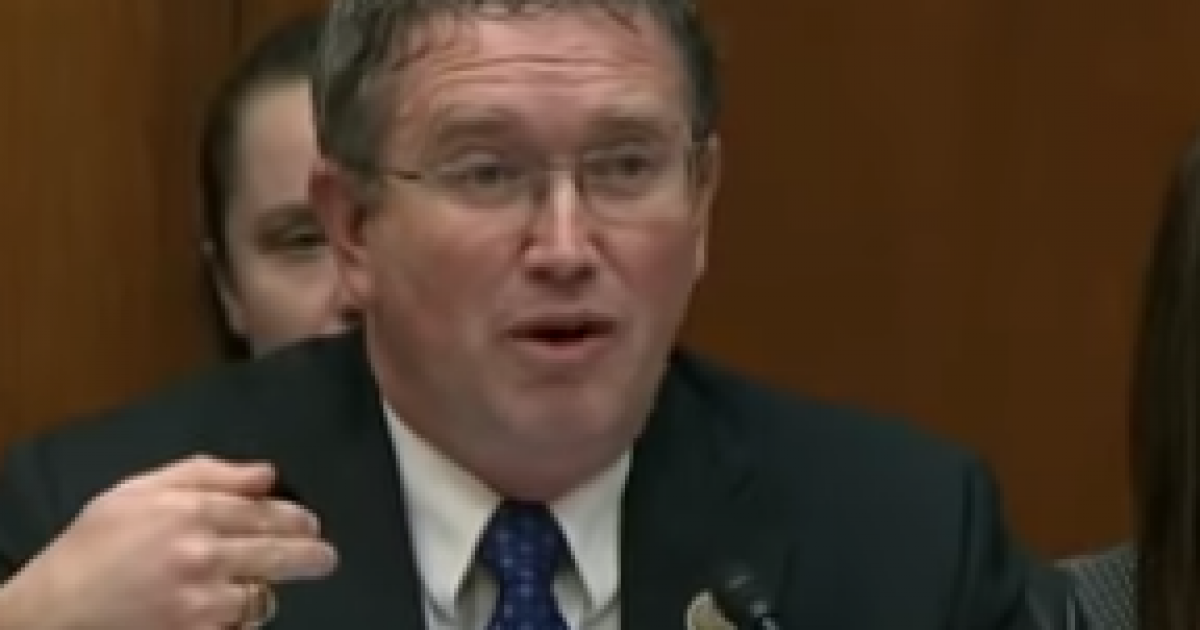
According to a report from Just the News, Kentucky congressman Thomas Massie believes that Wuhan virus related stimulus spending could push the national debt to $40 trillion by the time the pandemic subsides.
“The governors are talking about opening the economy back up, but they’re talking about doing it under limited circumstances, and they’re all warning they will shut it right back down if they see an increase in the numbers of COVID infections. And there’s no reason to believe the numbers won’t increase when they open it back up,” Massie said while being interviewed by Just the News.
“We’ve spent $7 trillion — spent or loaned. I think you can expect to see us spend or loan at least another $7 trillion so $14 trillion, round it up to $20 trillion. We’ll probably, if you count the extra stuff that’s on the balance sheet at the Fed, we’ll probably double the $20 trillion debt before this is over with,” the Kentucky congressman continued.
The total national debt is more than $25 trillion.
In this interview, Massie was questioned about how much the national debt will rise by the start of 2021.
“There’s no end in sight until we tie some of this money to the governors opening their states back up for business — that’s the only way this thing comes back to normal,” Massie stated.
“The problem with that is it turns out the stimulus package or the bailout package, whatever you want to call it, is about 80 percent popular right now with the American people — because it’s popular to do these bailouts, congressmen are going to keep meeting and doing the bailouts,” he noted.
Massie believes the only thing that’s going to “snap people back to reality” is when grocery store shelves become empty due to how people have been “getting their money” from government programs but haven’t gone back to work.
“This is not sound policy, and it will catch up with us. Actually the worse situation would be if 5 years from now we’re all paying 30 percent of our income in interest to somebody but I don’t know who we’d be paying it to. Who’s going to loan it to us at some point? I think the interest rates are going to start going up,” he asserted.
Massie also highlighted that potential interest rates hikes greatly concerned GOP elected officials during their recent talk with Federal Reserve Chairman Jerome Powell.
“Behind closed doors, they seem like raging fiscal conservatives. It’s only when they get to the floor and vote that they lose their minds and their principles. But behind the scenes on this conference call, they were all talking about the problems of inflation and the problem of when you borrow too much money without a sound plan for paying it back in a timely fashion that interest rates inevitably have to go up,” Massie sustained.
“You’re going to see the rate, not just the debt go up, but the rate of interest that we have to pay on the debt is going to go up too and when this is all over, we’ll probably be paying at least as much interest as — $600 billion a year — as we spend on the military,” he remarked.
In late March, Congress passed the $2.2 trillion CARES Act, which has set off a massive spending binge in D.C.
New York Senator Chuck Schumer is now requesting a “Rooseveltian” size Wuhan virus package for the purposes of bailing out states and local governments. Nicholas Ballasy of Just the News noted that “Other items discussed as part of the Democrats’ plan include rent assistance, universal broadband, infrastructure upgrades and more direct stimulus payments.”
Massie declared that he will vote against additional Wuhan virus stimulus spending.
“This is going to boomerang on us, and it’s going to boomerang hard when all the printing and the borrowing and the loaning catches up to us,” he said. “And the burden is going to be on the middle class, the productive members of society who go out to work every day, pay the bulk of the taxes and that’s who it’s going to come down on.”
The U.S. is clearly playing with fire as it cranks up government spending like never before.
Eventually, economic reality will hit as the country will likely have to confront a sovereign debt crisis. From there, all bets are off. Americans could witness severe inflation and wholesale reductions in their standard of living in the next decade or so if D.C. does not bother to exercise fiscal restraint.



